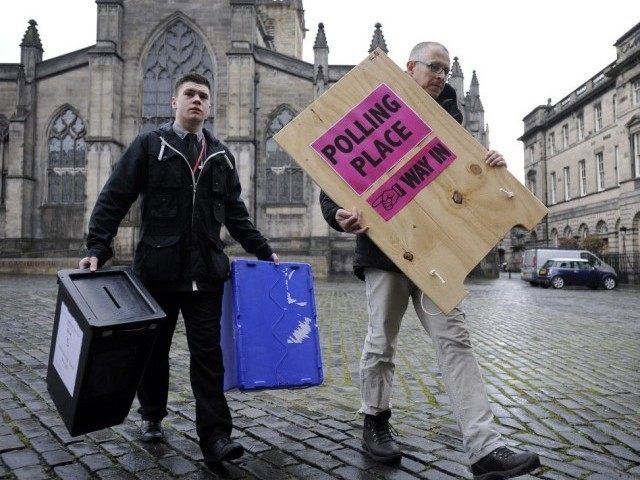British expats denied the right to vote in the referendum on European Union (EU) membership are taking the government to court over claims that they have been disenfranchised. If their challenge is successful, the referendum would have to be delayed in order to add more than 2 million names to the electoral register – a move which would likely benefit those in favour of a Brexit.
94 year old Harry Shindler fought in the Second World War, taking part in the 1944 liberation of Rome. He appeared in the High Court today to argue that expats who have been living abroad for 15 years or more should be given the right to vote in Britain’s referendum on EU membership.
Mr Shindler has been living in Porto d’Ascoli in Italy for more than 30 years after he married an Italian woman. Although he remains a British citizen he, and 2.2 million expats like him, are denied the right to vote in British elections, a rule which he claims is illegal.
Others in the same situation agree – Charlotte Oliver, is a British lawyer with her own practice in Rome, where she has lived since 2001 for “family reasons.”
“I am one of millions of people who make up the ever-increasing international British community,” she told The Guardian. “However, I still consider the UK my home, and the place where I will retire one day.”
She points out that the Conservative Party included a pledge to overturn the voting ban on long term British expats in their last election manifesto.
“As the Conservative party made clear in their manifesto, there should be a vote for life for British citizens. The cut-off point of 15 years is arbitrary and arcane given travel and communications have improved so much since it was imposed in 1982.
“It does not prove that a person has severed all ties with their country of origin. I cannot vote in Italian elections either as I am not an Italian national, so I am disenfranchised.”
The Conservative’s manifesto was indeed very clear on this point, vowing: “We will complete the electoral register, by working to include more of the five million Britons who live abroad. We will introduce votes for life, scrapping the rule that bars British citizens who have lived abroad for more than 15 years from voting.”
But polls show that support for remaining within the Union is waning, and the trend is likely to be further exacerbated by renewed migrant crisis this summer. Consequently the Conservative government, which backs Britain remaining within the EU, would rather see an earlier vote which excludes the expats than uphold its promise to widen the franchise.
The Cabinet Office, which co-ordinates elections, has argued that there simply isn’t time to enact the necessary legislation to give long term expats the vote before the referendum on June 23rd. Lawyers representing the expat community say that simply isn’t good enough.
“Our clients are being penalised for exercising their EU free movement rights,” said Richard Stein, a partner with Leigh Day, the law firm representing Shindler and others.
“The EU Referendum Act 2015 is said to be based on legislation for UK parliamentary general elections but it gives a vote in the EU referendum to members of the House of Lords, as well as to Irish and Commonwealth citizens who are resident in Gibraltar. None of these are allowed to vote in UK general elections.
“The people it arbitrarily excludes are those UK citizens who are among those most likely to be affected by the decision taken by voters in this referendum.
“Not to allow them to vote on the decision whether the UK remains part of the EU is unlawful and we have asked the court to deal with the issues urgently so that the act can be amended before the June date, to include all UK citizens residing in the EU for however long.”
Mr Shindler has previously petitioned the European Court of Human Rights in Strasbourg on the matter, arguing in 2013 that disenfranchisement in such a manner was illegal. His case was struck down, but he hopes to have better luck with a renewed application in relation specifically to the 2015 Referendum Act.
A spokesman for the Cabinet Office said: “The franchise for the EU referendum was debated, considered and agreed by both Houses of Parliament and is set out in legislation.
“Scrapping the 15-year rule for overseas electors is a manifesto pledge which the government remains committed to delivering. It is not connected to the referendum.”

COMMENTS
Please let us know if you're having issues with commenting.